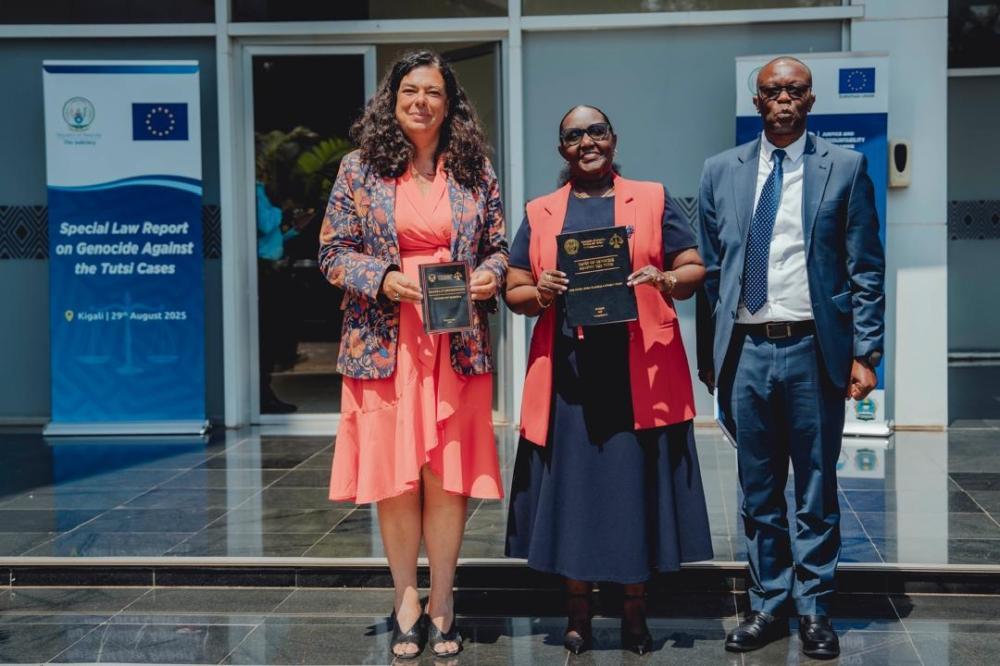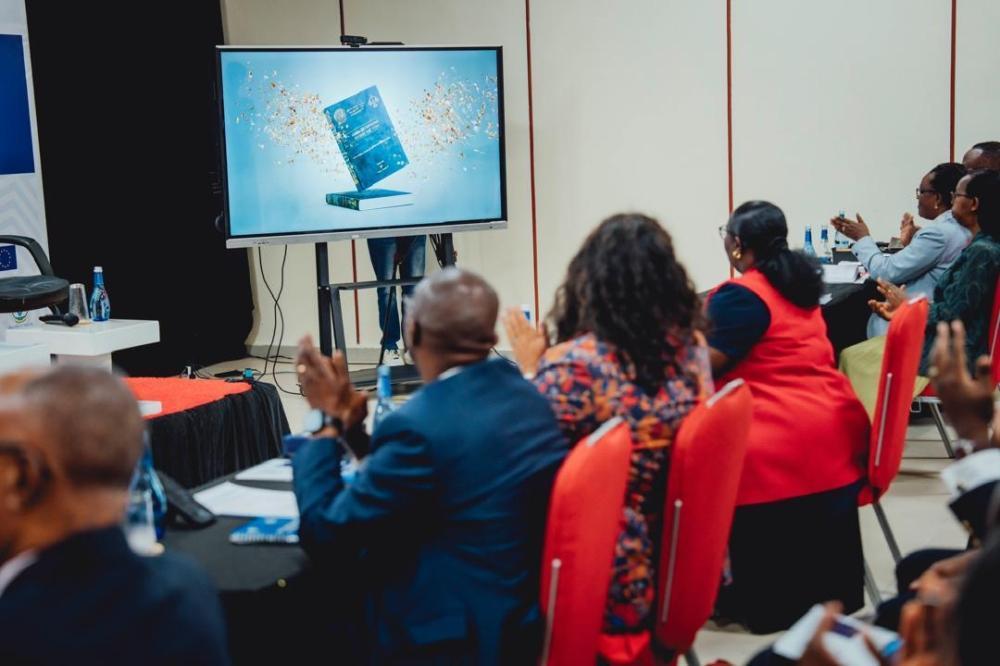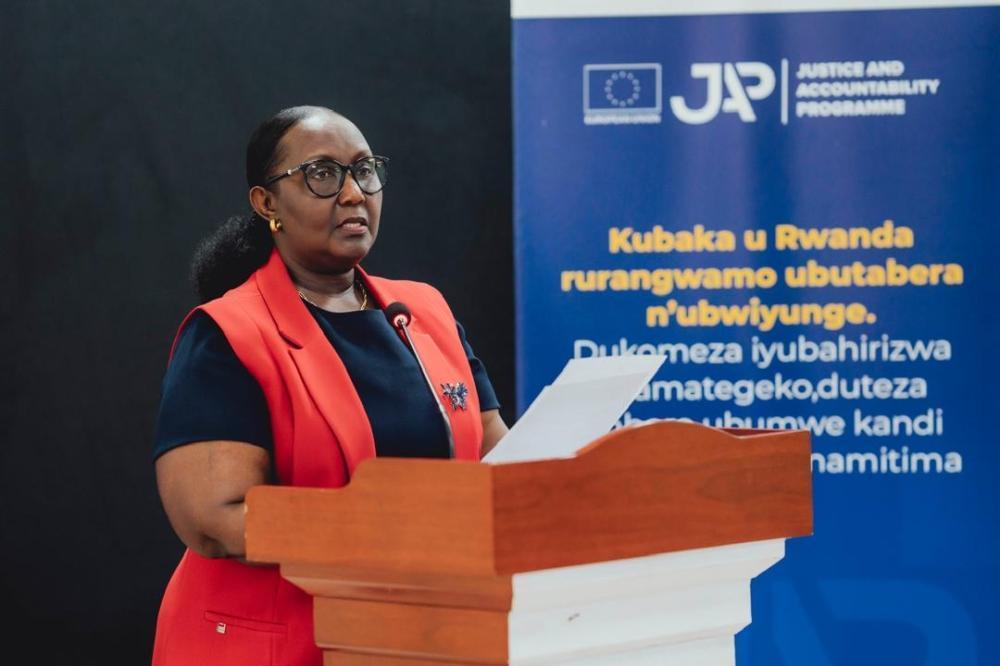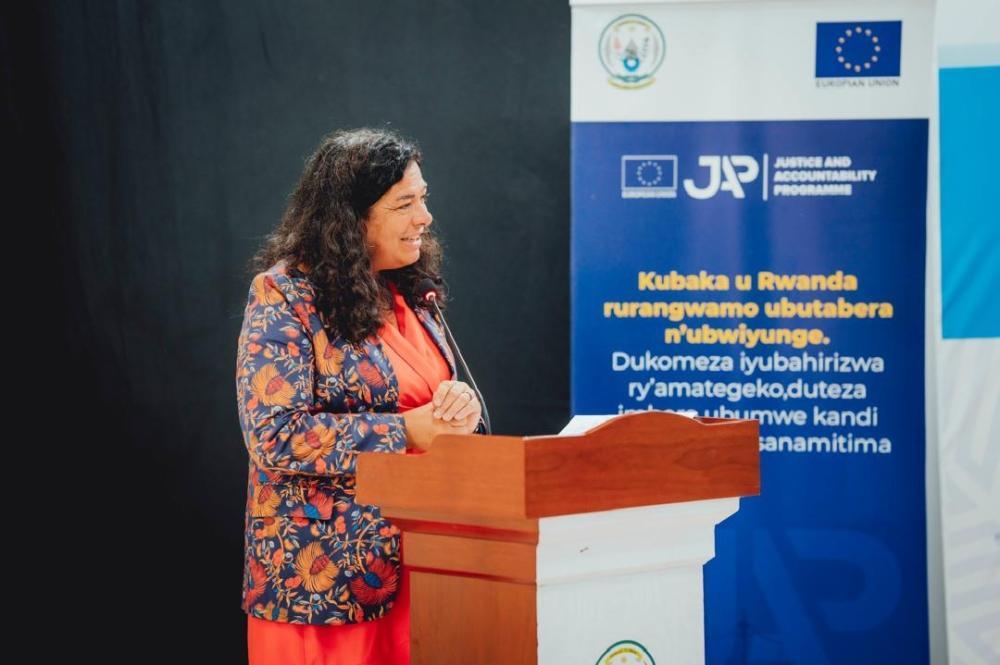Africa-Press – Rwanda. The Judiciary of Rwanda has officially launched a Special Law Report dedicated to landmark rulings on the 1994 Genocide against the Tutsi, a move hailed as a milestone in preserving justice, legal precedents, and historical truth.
The report, unveiled on Friday, August 28, compiles 20 significant cases involving key figures in the Genocide. It is the first of its kind and is expected to serve as both a legal reference and a safeguard against genocide denial and revisionism.
Speaking at the launch, Supreme Court President and Chief Justice Domitille Mukantaganzwa underscored the importance of the report in strengthening Rwanda’s legal system and consolidating the country’s commitment to the rule of law, transparency, and access to justice.
“The 1994 Genocide against the Tutsi claimed more than a million innocent lives, tore apart the fabric of our society, and left wounds that may never fully heal. Yet from those ashes, Rwanda chose the path of justice and reconciliation,” she said.
“This Special Law Report is a testament to the judiciary’s responsibility to hold perpetrators accountable, guarantee the rights of survivors, and build a society founded on the rule of law.”
Safeguarding Truth and Justice
Mukantaganzwa noted that compiling these rulings not only preserves legal precedents but also safeguards truth against denial and revisionism. She emphasized that the report is not just for legal practitioners, scholars, or students but also a broader testimony of Rwanda’s judicial commitment.
“Reliable law reporting is the backbone of any credible legal system. It fosters predictability, builds trust in judicial decisions, and ensures consistency and fairness,” she explained.
She further called upon legal practitioners to make use of the report, apply case law diligently, and contribute to their continuous improvement.
The report was compiled in collaboration with development partners.
Belén Calvo Uyarra, the European Union Ambassador to Rwanda, who attended the launch, commended the initiative as an important contribution to access to justice and accountability.
“The EU has supported Rwanda’s justice and reconciliation efforts since the end of the genocide, from the Gacaca courts to today’s compendium of jurisprudence,” she said.
Uyarra added that the Special Law Report would not only strengthen Rwanda’s justice delivery but also serve as a reference for international courts and contribute to global genocide jurisprudence.
“This is more than a legal tool; it is a living document for education, reconciliation, and the fight against impunity,” said Uyarra.
The role of law reporting
Justice Alphonse Ngagi of the Court of Appeal provided insights into Rwanda’s law reporting process. He explained that law reporting involves documenting court decisions, particularly landmark cases, to ensure consistency, accessibility, and predictability in the legal system.
“In Rwanda, we operate under a hybrid legal system that incorporates precedents from common law traditions,” he said. “This ensures that cases with similar circumstances are decided on consistent principles, promoting stability in judicial outcomes.”
Ngagi highlighted the advantages of law reporting, including fairness, judicial ethics, efficiency, and public trust.
He said Rwanda’s law reporting journey began in 2004 with initial reports before the Council of Legal Reporting was established in 2010. Since then, more than 20 volumes have been published, with the process later overseen by the Multi-Institutional Committee that was formed in 2014.
The committee brings together judges, prosecutors, members of Rwanda Bar Association, schools of law, and other stakeholders to ensure comprehensive and authoritative reporting. Reports are published in both Kinyarwanda and English, with cases selected through a rigorous process that prioritizes precedential value.
In addition to the Special Law Report on Genocide cases, Rwanda has also developed thematic reports on constitutional matters and law digests that condense key rulings into easily accessible summaries.
Ngagi said that despite challenges such as limited resources and increasing case complexity, officials said these reports would continue to expand, with a focus on sustainability, collaboration, and standardization to align with international best practices.
For More News And Analysis About Rwanda Follow Africa-Press









